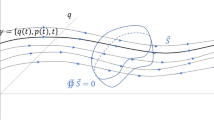Abstract
PROF. EDDINGTON (NATURE, April 14, p. 201) expresses well the properties that a substratum of matter, light, and electric force should have, and the reasons for combining space and æther, the two different, but always co-existing, substrata of the older physics, into one. What is not clear is why he stops there. The ancient rule, “Entities are not to be multiplied beyond necessity”, is as applicable now as ever. If a physical æther is to be postulated, it is for those who advocate it to show their reason for doing so, not for those who doubt it to offer arguments against it. So far as I can see, neither the old æther nor the new is more than a metaphysical concept of no utility, either in understanding natural phenomena or in predicting new ones, and accordingly neither forms part of the subject-matter of physics. In Prof. Eddington's own development of the theory he never makes any use of this concept. What he assumes is that physical laws can be expressed by differential equations with a certain mathematical property, and the whole of the verifiable results are deduced from this; but this assumption was chosen, not because it corresponded to any known property of space-time or æther, but because mathematically it was the simplest possible. The theory is not based on the concept of space-time, but on an unstated relation between physical laws and mathematical simplicity. Reasons why such an assumption is needed in any theory of scientific knowledge are given in a forthcoming paper by Dr. Wrinch and myself, and are independent of any views on the ultimate nature of the world, except that quantitative inference is possible.
This is a preview of subscription content, access via your institution
Access options
Subscribe to this journal
Receive 51 print issues and online access
$199.00 per year
only $3.90 per issue
Buy this article
- Purchase on Springer Link
- Instant access to full article PDF
Prices may be subject to local taxes which are calculated during checkout
Similar content being viewed by others
Author information
Authors and Affiliations
Rights and permissions
About this article
Cite this article
JEFFREYS, H. The Concept of “Space” in Physics. Nature 107, 267–268 (1921). https://doi.org/10.1038/107267b0
Issue Date:
DOI: https://doi.org/10.1038/107267b0
Comments
By submitting a comment you agree to abide by our Terms and Community Guidelines. If you find something abusive or that does not comply with our terms or guidelines please flag it as inappropriate.


